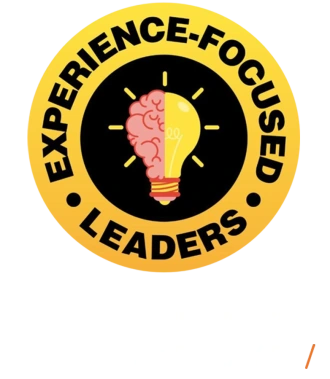They have raised close to $50m in VC funding from some of the best in the business, including the likes of Lightspeed, First Round Capital, and Gainsight. Prior to Influitive, Mark was the founding CEO of Eloqua that invented what is now known as the Marketing Automation space which spawned competitors like HubSpot, Marketo and Pardot. Eloqua was eventually bought by Oracle for a reported $810m.

View the Video Below
Listen to the Podcast Episode on Your Favorite Platform

.svg.png)


Eloqua’s Evolution and Customer Marketing
.png)
We were focused on B2B and and it was a proactive chat product, we needed all this pretty sophisticated analytics to understand what you know, what territory a prospect was in, what they were interested in, so we could connect them with the right person, and, as a result, we built a product that was completely different from everything else at the time.
(00:00-12:55)
Mark Organ, Founding CEO of Influitive and a B2B leader, coach, and category maker, explains the origins of the idea behind Eloqua and how it evolved into the buying experience space. At the time, the experience of sellers was really poor as they were often talking to prospects who weren't interested in buying. The internet was emerging as a place for buyers to go when they were interested in buying something. Eloqua was originally a chat product, a lot like what you might find with Intercom today. And when they put the email engine on top of it, they created a product that was completely different from everything else at the time.
.png)
The Evolution of Marketing Automation Companies
.png)
You can't win everything. I wanted to create what's called a fighting brand, right? So you create a fighting brand so that companies like Marketo and HubSpot have a difficult time getting too much oxygen.
(12:55-20:21)
Mark discusses the history of marketing automation and how it has evolved over the years. He examines the success of Oracle's purchase of PeopleSoft and Eloqua, how user experience was the weak spot for Eloqua, and how Eloqua's success in the high-end market created a vacuum in the mid-market. He also talks about the strategy of creating a "fighting brand" to prevent Marketo and HubSpot from dominating the space and the impact his strategy had on the industry.
.png)
The Importance of Customer Advocacy
.png)
If you want to close deals faster, if you get a reference call, one-to-one reference call in there, they close faster. If you've got the right case studies on your website, if you've got now, you've got G2 and trust radius and and gardener peer insights type of things going on, when, when prospects are seeing those and it resonates with them, they're much more likely to become not just a customer but a successful customer.
(20:21-33:51)
Mark goes deeper into the concept of customer advocacy and how it differs from the customer experience. He explains how best quality customers are more likely to come from a customer channel, such as referrals or reference calls. Drawing from his experience at Eloqua, Mark explains how providing an amazing experience for customers can result in an outpouring of advocacy. Mark's research revealed that advocates want to feel like they are part of the team and that their identity is connected to the company they advocate for.
.png)

Developing Categories and Serving Specific Personas
(33:51-42:54)
Mark believes categories are built around a special class of people who think about solving problems differently from others. The rise of the internet and the 2001-2003 recession created a need for a demand-gen automation category. Eloqua's partnership with Serious Decisions served the "special people" of the demand-gen automation category by providing analyst support, a community, an award ceremony, and an ecosystem. Mark emphasizes the importance of serving the customers in their journey and how a category creator can be successful even if they are wrong.
.png)
Content's Role in Creating Categories
.png)
What if we serve those people who think differently and give them everything that they need for success? That is, to me, what great categories are built around, and less around disruptive technology.
(42:54-53:38)
The speakers explore how modern businesses have to spend exponentially more money to gain customer attention that is already scarce, fragmented, and overwhelmed. The founding ideas behind Influitive are discussed, including the challenges of building new categories and the role content can play. Customer-driven content is the best content, and it can help create a movement that leads to a new category. Mark also draws parallels between religions and revolutions to new categories and how content is critical to creating a movement.
.png)
Building Industry Categories Through Disruptive Innovation
.png)
I think no-code is creating a whole bunch of exciting categories, and the reason why it is it is a disruptive innovation, right? Because now you're giving non-technical people the ability to build really amazing, powerful solutions, right?
(53:38-01:05:48)
Mark shares his insight on how no-code technologies are creating a disruptive innovation that empowers non-technical people to build complex solutions and generate far greater value than they used to. The speakers discuss how this enables a new category of process engineers to be paid more than ever before and how customer marketing has gone from being a backwater to becoming the main event. Mark explains how trends such as the exponential growth of content and the dominance of social media have contributed to this shift. He outlines his advice for entrepreneurs looking to build a company by betting on these people and giving them the tools they need. Finally, the speakers consider the implications of this for marketing organizations during this difficult economic time.
.png)

Persuasion Techniques in Marketing and Sales
(1:05:48-01:09:59)
The speakers explore how marketers can use principles from neuroscience, motivational psychology, and social psychology to persuade people into their way of thinking and invest in their ideas. Mark also shares his expertise on how to build categories around special classes of people who think differently and how modern businesses must expend more resources to gain attention in a crowded market. Finally, the speakers discuss how no-code technologies are empowering non-technical people to develop complex solutions.
.png)
Leveraging Content Marketing for Performance Improvement
(01:09:59-01:11:24)
Mark shares his expertise on how to use principles from social psychology to increase the effectiveness of content marketing. He explains how to get people to provide a little bit of information in exchange for something of value, such as an e-book in their favorite color addressed to them by name. The speakers discuss how companies can use this tactic to build trust and compliance for more extensive forms. Mark also emphasizes the need for businesses to invest in marketing and customer experience in order to gain attention in a world that is overloaded with information.
.png)
Check the the episode's Transcript (AI-generated) HERE.
Other Episodes

Godard Abel | CEO of G2
S 01 | Ep 6 Where You Go for Software: Reach Your Peak


Dean Stocker | CEO of Alteryx
S 01 | Ep 8 Turning Your Customers Into Your Biggest Champions


Peter Fader | Co-Founder of ThetaCLV
S 01 | Ep 10 Turning Your Marketing Into Dollars

Author

Experience-focused Leaders is the #1 Multimedia Podcast! We talk to senior business & tech leaders about the experiences that move forward organizations, customers and society at large. True to form, we mix audio, video, web and eBook formats to turn these authentic conversations into personalized nuggets you'll remember & use.



.png)
